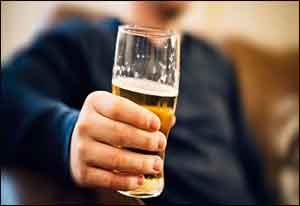- Home
- Editorial
- News
- Practice Guidelines
- Anesthesiology Guidelines
- Cancer Guidelines
- Cardiac Sciences Guidelines
- Critical Care Guidelines
- Dentistry Guidelines
- Dermatology Guidelines
- Diabetes and Endo Guidelines
- Diagnostics Guidelines
- ENT Guidelines
- Featured Practice Guidelines
- Gastroenterology Guidelines
- Geriatrics Guidelines
- Medicine Guidelines
- Nephrology Guidelines
- Neurosciences Guidelines
- Obs and Gynae Guidelines
- Ophthalmology Guidelines
- Orthopaedics Guidelines
- Paediatrics Guidelines
- Psychiatry Guidelines
- Pulmonology Guidelines
- Radiology Guidelines
- Surgery Guidelines
- Urology Guidelines
Energy drinks can negatively impact health of youth

Over half of Canadian youth and young adults who have consumed energy drinks have experienced negative health effects as a result, according to a study from the University of Waterloo.
In a nationwide survey of Canadian youth, over half of those who had ever consumed an energy drink had reported experiencing an adverse health event, including rapid heartbeat, nausea, and in rare cases, seizures.
Currently, Canadian legislation is meant to prohibit energy drinks from being marketed to children and energy drinks are not recommend to be used by people participating in sporting activities.
"Most risk assessments to date have used coffee as a reference for estimating the health effects of energy drinks; however, it is clear these products pose a greater health risk," said David Hammond a Professor in the School of Public Health at the University of Waterloo. "The health effects from energy could be due to the different ingredients than coffee, or the ways in which they consumed, including with alcohol or during physical activity; regardless, the findings suggest a need to increase surveillance of health effects from these products."
In conducting the study, the researchers surveyed 2,055 young Canadians aged 12 to 24. Of those that had reported consuming energy drinks at some point in their lives, 55.4 percent reported experiencing an adverse health event.
Of those reporting adverse health events, 24.7 percent reported experiencing a fast heartbeat, 24.1 percent reported difficulty sleeping and 18.3 percent reported experiencing headaches. A total of 5.1 percent reported nausea, vomiting or diarrhea, 5 percent sought medical attention, 3.6 percent reported experiencing chest pains, and 0.2 percent reported having a seizure.
"The number of health effects observed in our study suggests that more should be done to restrict consumption among children and youth," said Hammond. "At the moment, there are no restrictions on children purchasing energy drinks, and they are marketed at the point-of-sale in grocery stores, as well as advertising that targets children."
Hammond's study appears in the journal CMAJ Open.
For more details click on the link: CMAJ open, 2018; 6: E19-E25 DOI: 10.9778/cmajo.20160154
consuming energy drinksDavid Hammonddiarrheaenergy drinksheartbeatjournal CMAJ OpennauseaseizuresUniversity of Waterloo
Source : Press ReleaseNext Story
NO DATA FOUND

Disclaimer: This site is primarily intended for healthcare professionals. Any content/information on this website does not replace the advice of medical and/or health professionals and should not be construed as medical/diagnostic advice/endorsement or prescription. Use of this site is subject to our terms of use, privacy policy, advertisement policy. © 2020 Minerva Medical Treatment Pvt Ltd